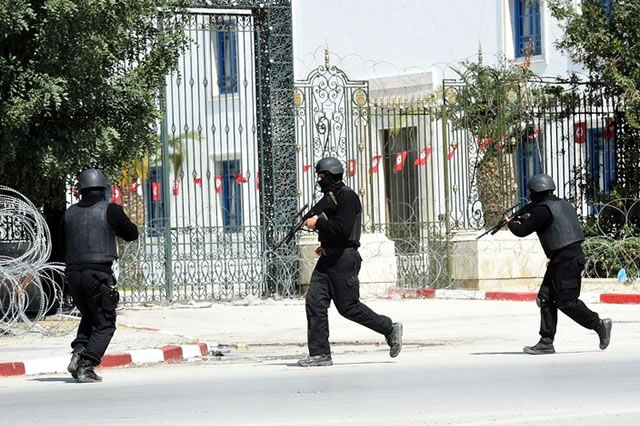
March 20, 2015 | New York / The Hague
PGA calls for bringing to justice all perpetrators of the shocking attacks in the Bardo Museum, either before a domestic or an international jurisdiction.
PGA believes that this week’s attacks against civilians in Tunis, which have been claimed by ISIS, might fall under the definition of ‘crimes against humanity’ as defined in the Rome Statute, to which Tunisia has acceded in 2011. In case of ‘crimes against humanity’, individual criminal responsibility is affirmed not only for the direct perpetrators who have planned, ordered, executed, aided or abetted inhumane acts such as “murder, extermination and severe deprivation of physical liberty” (Art. 7, Rome Statute of the ICC), but also for the superiors who knew or should have known about their subordinates’ criminal actions and did not take measures to prevent or repress them (Art. 28, Rome Statute of the ICC).
The added-value of applying the law of ‘crimes against humanity’ and ‘war crimes’ as defined in the Rome Statute vis-à-vis anti-terrorism legislation is related to the application of the general principles of International Criminal Law:
-
First, according to the principle of command responsibility, the military commander or civilian superior is responsible for the crime even if he/she did not ordered, planned or instigated its commission as long as the commander could have prevented or repressed the direct perpetrators;
-
Second, the non-applicability of Statutes of Limitation, which means that crimes can always be investigated and tried as they are ‘imprescriptible’;
-
Third, the non-applicability of immunities, which ensures the equal application of the law to all individuals notwithstanding the position held, including Heads of States or other Officials; and
-
Fourth, the irrelevance of domestic criminalization (Principle II, Nuremberg Principles) and of other bars or obstacles to effective prosecutions, which means that it does no matter whether these crimes under International Law have been incorporated in the relevant National Law(s).
Public information sources indicate that Tunisian nationals represent the largest contingent of the so-called foreign-fighters who are active in the ranks of Dae’sh/ISIS-ISIL/‘is’: All the mass-atrocity crimes of genocide, crimes against humanity and war crimes allegedly committed by these individuals on the soil of Syria, Iraq and Lebanon – three States that have not yet ratified the Rome Statute of the ICC – are fully under the jurisdiction of the Hague-based Court in light of the ratification of their State of Nationality, Tunisia.
Dip. Minou Tavarez Mirabal (Dominican Republic), President, Parliamentarians for Global Action
Dep. Alain Destexhe (Belgium), Co-Convenor, International Law & Human Rights Program, PGA
Ms. Barbara Lochbihler, MEP (Germany), Co-Convenor, Int. Law & Human Rights Program, PGA
